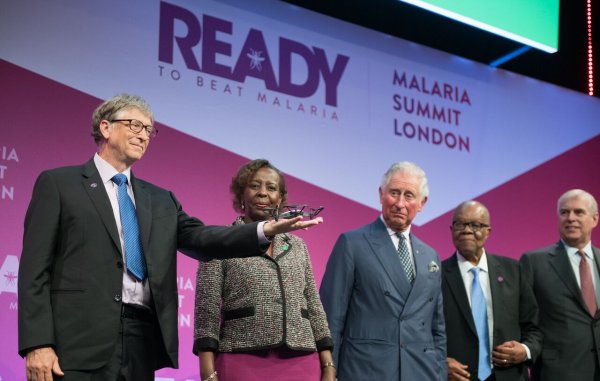Commonwealth leaders urged to halve malaria cases within five years
The Commonwealth Malaria Summit last week in London (part of CHOGM 2018) welcomed Bill Gates and 12 Heads of State, 2 Deputy Heads of State and many international organisations on Wednesday 18th April. This fantastic event resulted in more than £2.9bn / $4.1bn pledged from Governments, the private sector, philanthropists and integral organisations to support the drive to eliminate malaria.

An estimated 90% of the Commonwealth's 2.4 billion people live in malaria-endemic countries. Heads of State, Bill Gates, HRH Prince of Wales and many malaria partners have confirmed a pledge to halve malaria cases within the next five years. A lack of funding and access to basic healthcare are two critical factors, but perhaps more worrying is the acknowledgement that drug and insecticide resistance has to be tackled to reach elimination targets.
Bill Gates, co-founder of the Bill & Melinda Gates foundation, focused attention on the issues during the Summit "We need to understand where the resistance is, where the tools aren't working so well." To support the challenges, government leaders have committed £2.9bn / $4.1bn, with a particular focus on drug development, drug and insecticide resistance, and diagnostics. WWARN supports these priorities and works with more than 280 partners including the Bill & Melinda Gates Foundation, research institutions, PDPs and others to respond to the emergence and spread of drug resistance, currently focussed in South-East Asia.
As some of our team joined the Commonwealth leaders in London, our senior researchers were gathering in Dakar, Senegal for the 7th Multilateral Initiative on Malaria (MIM) Conference. We had a fantastic time with our partners. A special thank you to our West Africa Regional Centre team for their work to organise the conference, we were delighted to share our latest research tools and results to strengthen collaborative research.
The WWARN explorer visualises results of trial data from antimalarial resistance which can help researchers identify and address gaps in clinical trials data. Monitoring global malaria resistance will be critical to halving malaria cases within five years; we're very grateful that so many leaders and key stakeholders in the malaria community are working together to tackle this problem together.
The team at Malaria No More UK led a campaign to secure media coverage at the Commonwealth Malaria Summit, here are some highlights below:
- Reuters – UK pledges cash for Commonwealth Education, Urges Malaria Fight – https://www.reuters.com/article/us-britain-chogm-may/uk-pledges-cash-for-commonwealth-education-urges-malaria-fight-idUSKBN1HN2YD
- Bloomberg – Glaxo, Novartis Join $4b Gates-Led Push to Fight Malaria – https://www.bloomberg.com/news/articles/2018-04-17/glaxo-novartis-join-4-billion-gates-led-push-to-fight-malaria
- Telegraph – War on Malaria: On the Brink of a Breakthrough? – https://www.telegraph.co.uk/news/the-war-on-malaria/
- The Guardian – Invest in Mosquito Surveillance to Combat Malaria, says Bill Gates – https://www.theguardian.com/global-development/2018/apr/18/commonwealth-nations-malaria-summit-london
- BBC – Malaria Experts Fear Disease's Resurgence – https://www.bbc.co.uk/news/health-43786343

